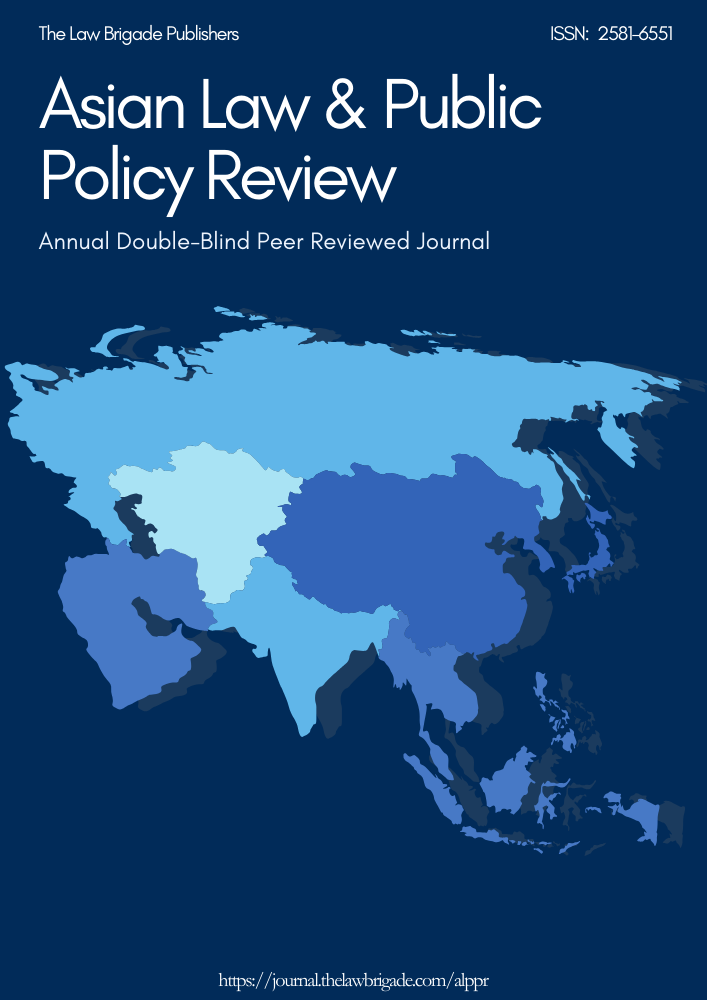Analyzing the Jurisdictional Arbitrage Potency of Indian Contract Law: With the Distinct Application of the Parol Evidence Rule of Contract Interpretation
Keywords:
Indian Contract Law, Commercial Law, Contract Interpretation, Plain Meaning RuleAbstract
The Common Law Parol Evidence Rule, is a principle of restraint in contract interpretation derived from common law courts (specifically inclusive of the jury system, i.e., the United States of America- U.S.A, since 1630)- excluding the consideration of preceding, contemporaneous (oral- specifically exempting written stature), and successive (subject to jurisdiction: i.e., allowed in the U.S.A, but barred in the United Kingdom- U.K) statements, agreements, and conduct (oral, written and behavioural- subject to jurisdictional requisite) deemed ‘extrinsic/Parol evidence’, in the contrary/alternative interpretation of contracts, in the presence of attributed ‘written stature’ (expressly representative of the intentions of the parties). The objective of the rule is to sanctify the ‘written stature’ of contracts, with the attribution of inherent finality and determinative impetus. Post initial conception by common law courts as a tool, to direct the attention of juries, towards the specific written provisions of contracts subject to litigation, inhibiting bias upon the consideration of irrelevant prior evidence, being agreement/statement/conduct (not mutually exclusive)[ii], capable of impeding the textual interpretation of contracts; the Evidence Parol Rule, has been subject to manifestation/rejection (wholly/partially), across several legal systemic-integration efforts, bearing legislative impetus- i.e., the United Nations Convention on Contacts for the International Sale of Goods (CISG), the International Institute for Unification of Private Law (UNIDROIT PICC) Principles of International Commercial Contracts, Principles of European Contract Law (PECL), the Restatement (Second) of Contracts and the Uniform Commercial Code (UCC) [in the context of the U.S.A] and jurisdictions (including the U.S.A, the U.K, India- being a partial integration jurisdiction according to precedent and statute such as the Indian Evidence Act 1872 and the Indian Contracts Act 1872, and civil law frameworks such as Japan, France and Germany). The whole/part acceptance/rejection of the Evidence Parol Rule, determines the fundamental scope of Contract Interpretation in a Jurisdiction, and upon explaining the process, the objective of this essay, is to substantiate the Jurisdictional Arbitrage Potency of the Indian Contract Law Regime, along the lines of preserving ‘Contractual Purity’.
Downloads
Downloads
Published
Issue
Section
License

This work is licensed under a Creative Commons Attribution-NonCommercial-ShareAlike 4.0 International License.
License Terms
Ownership and Licensing:
Authors of research papers submitted to any journal published by The Law Brigade Publishers retain the copyright of their work while granting the journal specific rights. Authors maintain ownership of the copyright and grant the journal the right of first publication. Simultaneously, authors agree to license their research papers under the Creative Commons Attribution-ShareAlike 4.0 International (CC BY-SA 4.0) License.
License Permissions:
Under the CC BY-SA 4.0 License, others are permitted to share and adapt the work, even for commercial purposes, provided that appropriate attribution is given to the authors, and acknowledgment is made of the initial publication by The Law Brigade Publishers. This license encourages the broad dissemination and reuse of research papers while ensuring that the original work is properly credited.
Additional Distribution Arrangements:
Authors are free to enter into separate, non-exclusive contractual arrangements for distributing the published version of the work (e.g., posting it to institutional repositories or publishing it in books), provided that the original publication by The Law Brigade Publishers is acknowledged.
Online Posting:
Authors are encouraged to share their work online (e.g., in institutional repositories or on personal websites) both prior to submission and after publication. This practice can facilitate productive exchanges and increase the visibility and citation of the work.
Responsibility and Liability:
Authors are responsible for ensuring that their submitted research papers do not infringe on the copyright, privacy, or other rights of third parties. The Law Brigade Publishers disclaims any liability for any copyright infringement or violation of third-party rights within the submitted research papers.


